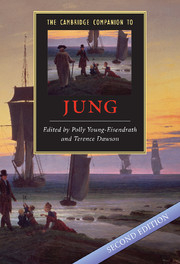Book contents
- Frontmatter
- New developments in the post-Jungian field
- Part I Jung’s Ideas and their Context
- 1 The historical context of analytical psychology
- 2 Freud, Jung, and psychoanalysis
- 3 The creative psyche: Jung’s major contributions
- 4 Psychic imaging: a bridge between subject and object
- Part II Analytical Psychology in Practice
- Part III Analytical Psychology in Society
- Index
3 - The creative psyche: Jung’s major contributions
from Part I - Jung’s Ideas and their Context
Published online by Cambridge University Press: 28 June 2008
- Frontmatter
- New developments in the post-Jungian field
- Part I Jung’s Ideas and their Context
- 1 The historical context of analytical psychology
- 2 Freud, Jung, and psychoanalysis
- 3 The creative psyche: Jung’s major contributions
- 4 Psychic imaging: a bridge between subject and object
- Part II Analytical Psychology in Practice
- Part III Analytical Psychology in Society
- Index
Summary
For Jung, the psyche was a many-splendored thing: fluid, multi-dimensional, alive, and capable of creative development. Having been Assistant Director of a psychiatric hospital, Jung was no stranger to disease, psychosis, and inertia. But he possessed a love for the orderly chaos of the psyche and a trust in its integrity, which both informed his conception of it, and shaped his psychoanalytic vision. This chapter explores Jung's major discoveries, the bedrock upon which his psychological vision rests and the ideas which continue to inform contemporary thought and practice: the prospective, emergent nature of psychological process; the subjective, individual path to objective awareness; and the creative use of imagination and unconscious material. Although Jung is infamous for having drawn on esoteric sources such as alchemy, actually he was prescient in terms of his post-modern view of the psyche. Disturbed by the trend in which the scientific knowledge of matter was outstripping knowledge of the psyche, Jung noted that just as chemistry and astronomy had split off from their origins in alchemy and astrology, modern science was distancing itself from the study and understanding of the psychological universe. He foresaw the enormity of the discrepancy we face now: while cracking the genetic code and creating biological life we remain virtually ignorant about psychological life and our consequent ethical imperatives. Jung was drawn to symbol systems like astrology and alchemy because they were oriented toward a synthetic understanding of matter and psyche.
- Type
- Chapter
- Information
- The Cambridge Companion to Jung , pp. 57 - 76Publisher: Cambridge University PressPrint publication year: 2008
- 6
- Cited by

